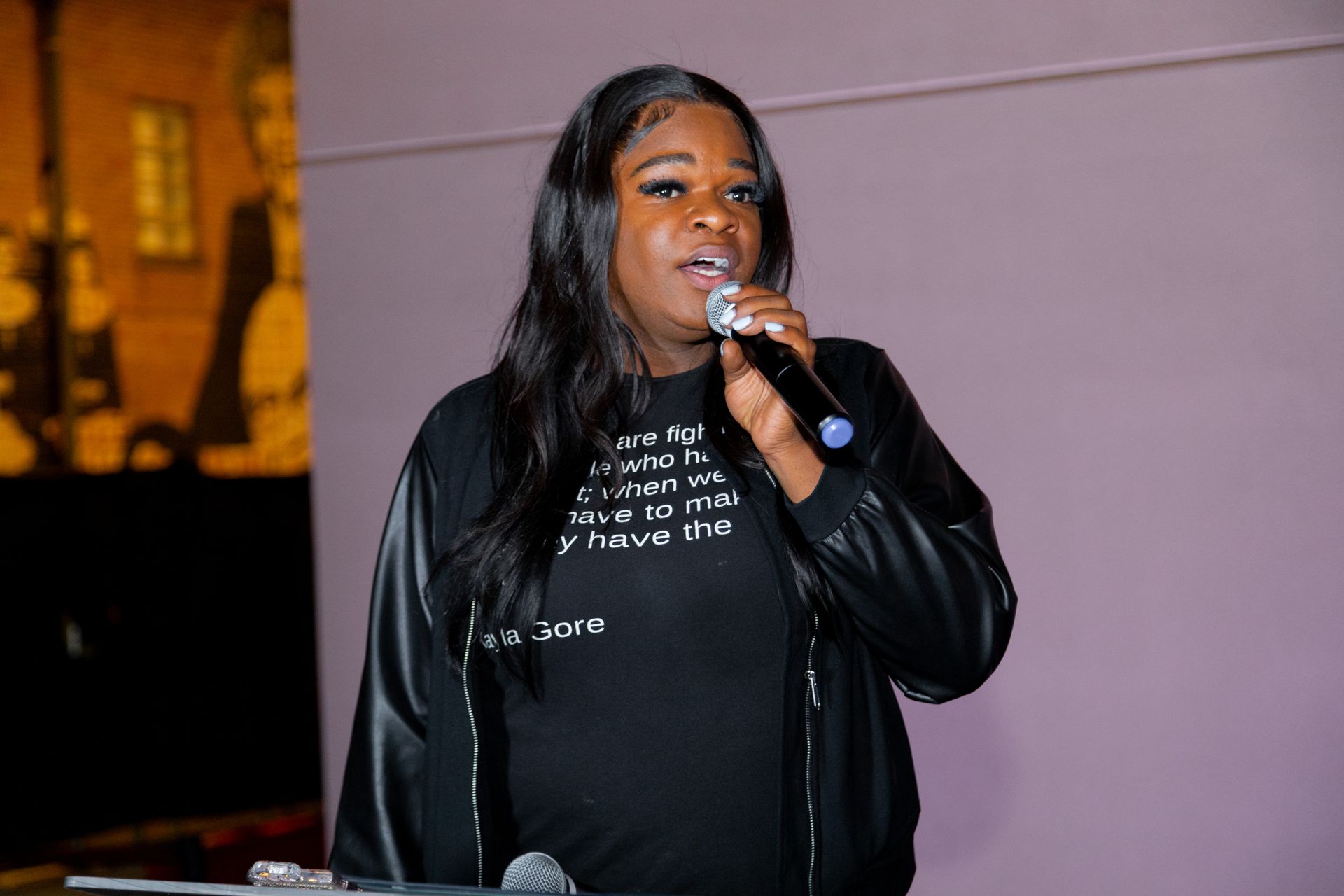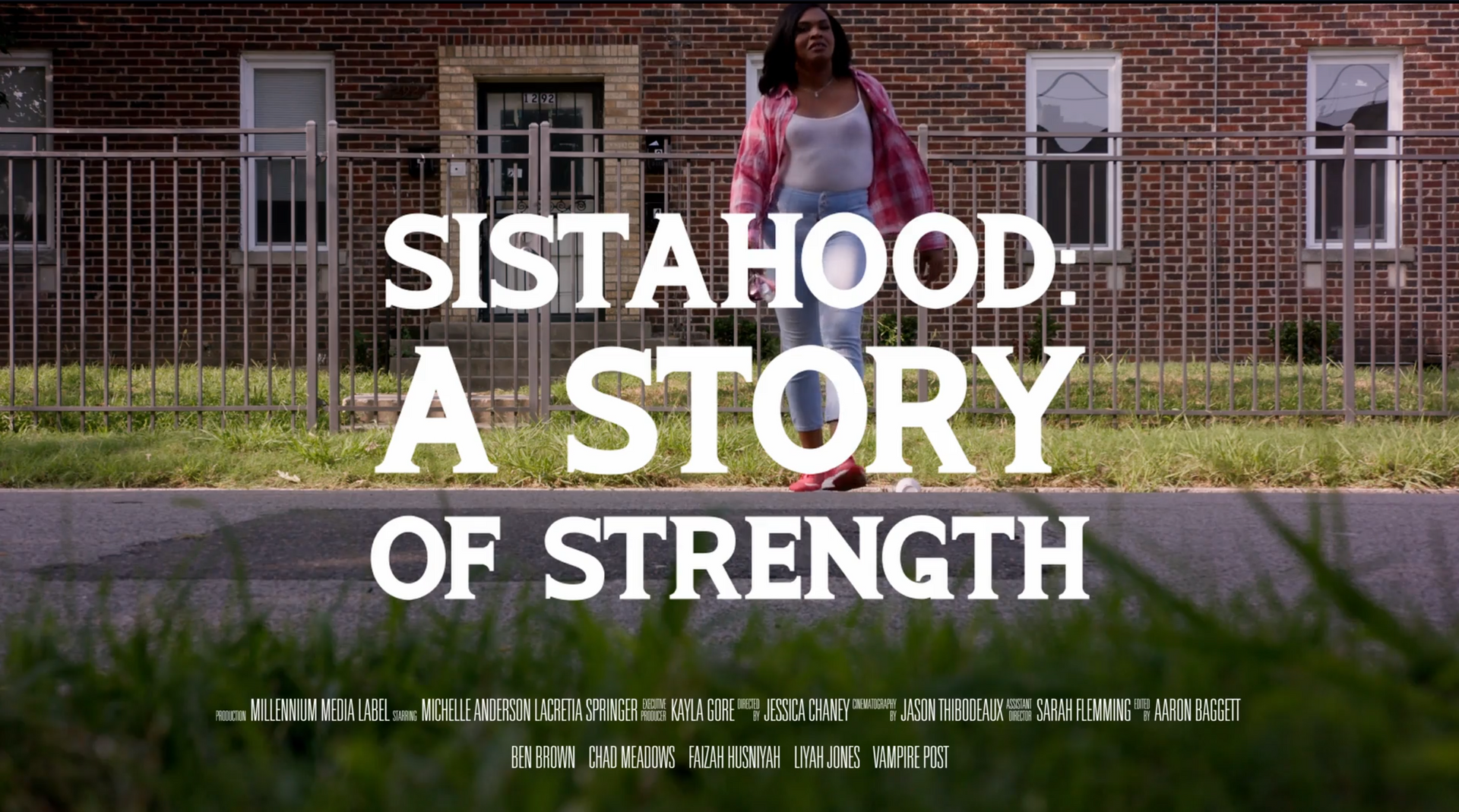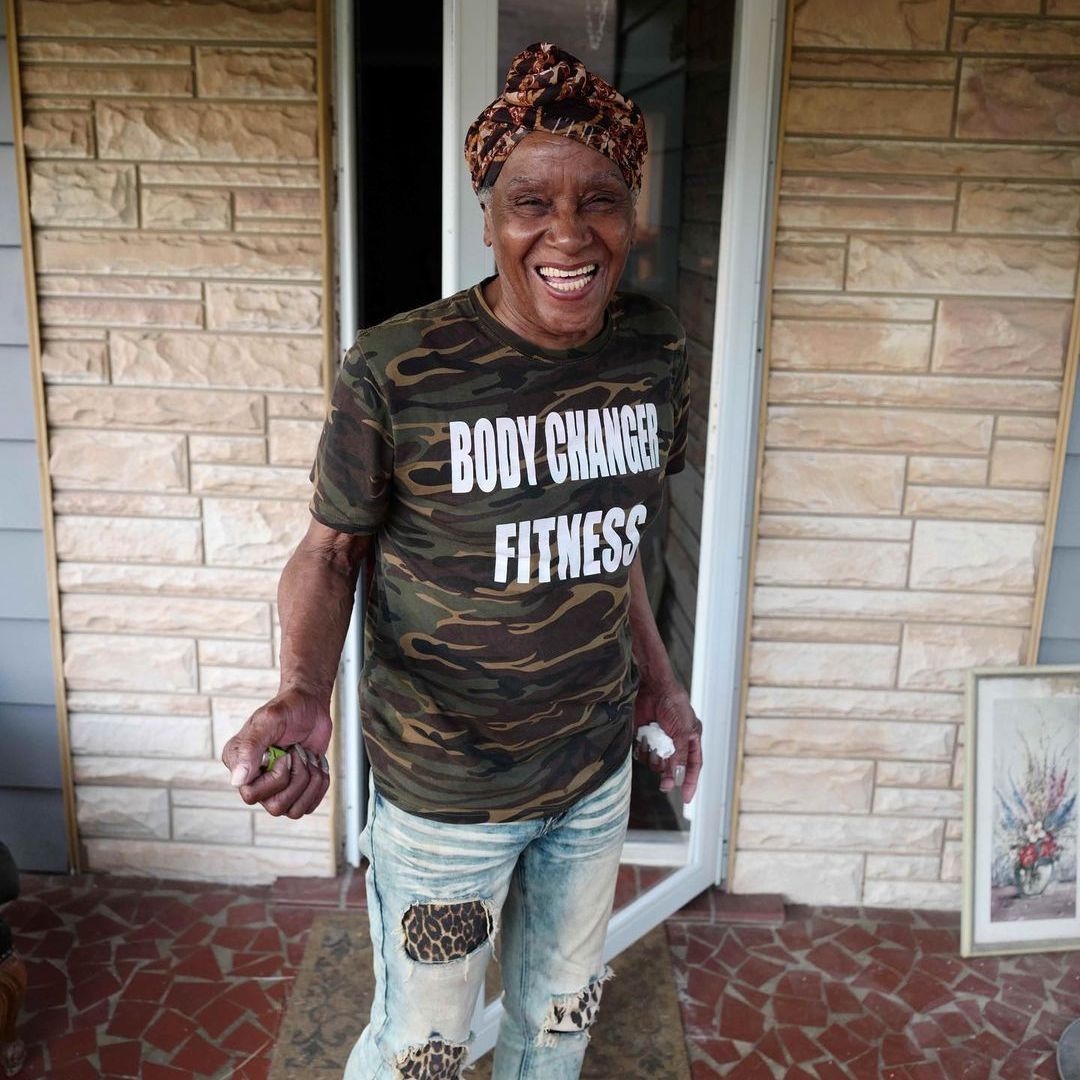Sistahood:
A Story of Strength
"When you don't have stable housing, your biggest thing is where am I going to get my next meal? Where am I going to lay my head for the night?"
-Michelle Anderson, Tiny House Resident
Cast: Michelle Anderson, Lacretia Springer
Production: Millennium Media Label
Executive Producer: Kayla Gore
Director: Jessica Chaney
Cinematography: Jason Thibodeaux
Assistant Director: Sarah Flemming
Edited By: Aaron Baggett
What We're Facing
1 in 5
Transgender people in the United States have been discriminated against when seeking a home.
1 in 10
Transgender people have been evicted from their homes because of their gender identity.
51%
of LGBTQIA+ elders are concerned about having enough money to pay for housing or bills.
80%
increase in homelessness experienced by gender nonconforming people since 2017.
Our Story
My Sistah’s House was founded in 2016 by two transgender women of color, Kayla Gore and Ellyahnna C. Wattshal, who sought to bridge a gap in services for transgender and queer people of color (TQPOC) in Memphis, TN. in response to a crisis they were witnessing among their own community members.
Executive Director, Kayla Gore, converted a six-bedroom house she owns into an emergency housing facility with eight beds available for TLGBQ people in need of shelter. My Sistah’s House primarily serves TGNC people of color, many of whom have recently been released from incarceration, are experiencing intimate partner violence, and/or are experiencing homelessness or housing insecurity.
Expanding on our emergency housing program, MSH volunteer staff set up a bail fund for incarcerated trans women in the area and began offering our clients advocacy, legal, and multi-level resource assistance to help them secure permanent housing and stable income.
Because we serve a very large number of trans and non-binary people who are experiencing homelessness, MSH now includes our Tiny Homes Project. In the last year, we have raised funds to purchase land to build 20 tiny homes. To date, two homes have been built and as we build more, we are building a support programs to help those who enter the Tiny Homes Project in making the most of this housing opportunity, where they can stay for one year. During the year, Tiny Homes residents can access support services through MSH so that they can prepare to move into permanent housing.
As an ACTION (Act with Communities To Increase Opportunities and address Needs in the South) TIS (Trauma-Informed Space) certified organization, we are equipped to:
- Recognize how physical spaces can affect individuals’ mental, emotional, social, and physical health and well-being.
- Practice strategies in our organization to create trauma-informed and healing-centered spaces.
- Understand the elements and best practices for creating trauma-informed spaces.
- Connect the principles of trauma-informed care to physical and virtual spaces.
- Understand the role of trauma-informed spaces in working alongside other justice movements (i.e., meaningful involvement of PLWHA, racial, language, and economic justice).







